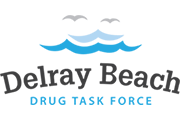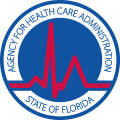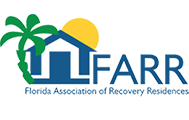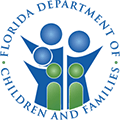Substance abuse is a broad term to describe using a substance to the degree that it begins to harm the person using it. Substance abuse can include both legal and illegal substances. Taking more than one’s prescribed dose of Vicodin, regularly drinking an excessive amount of alcohol after work, and long-term use of cocaine all fall under the broad substance abuse umbrella.
Understanding Drug Addiction
Learn about drug addiction
If a person continues to abuse a substance, that person can eventually develop an addiction and possibly dependence. When a person is addicted to a substance, he or she may compulsively seek it out and make tremendous personal, relational, and financial sacrifices to continue using. One may spend hours making multiple appointments to multiple doctors to secure a supply of an opioid painkiller, such as OxyContin, or spend thousands of dollars per month on cocaine or heroin. Because drug habits are expensive, one may even engage in theft or other forms of criminal activity to pay for substances.
The effects of substance abuse are both personal and communal. For the person who uses, substances can wreak havoc on his or her mind or body by causing physical ailments, cognitive problems, emotional outbursts, and even death. Substance use also affects a person’s loved ones, causing them anguish as they helplessly watch the substance user spiral into addiction. Loved ones may eventually withdraw completely, dissolving friendships and marriages and preventing the user from having custody of his or her children. Substance use can ravage entire communities, perpetuating cycles of poverty and driving up criminal activity as each member of the community searches for his or her next fix.
Substance use disorders are not due simply to a lack of willpower. Each person’s individual struggle with substance abuse has complex genetic and environmental roots that experts are even now continuing to discover. Although substance abuse is a devastating and powerful affliction, there is help available for those willing to seek it.
Statistics
Drug Addiction Statistics
In 2012, nearly ten percent of the U.S. population had abused either prescription or illegal drugs in the past month. In the U.S., the abuse of legal and illegal substances siphons nearly $700 billion nationwide every year as a result of crime, lost productivity, and healthcare costs. From 2001-2003, deaths from prescription drugs increased over 200% and deaths from illegal drugs increased over 260%. Deaths from benzodiazepines, or benzos, were more than four times higher, while deaths from heroin were five-and-a-half times higher.
Causes & Risks
Causes and Risk Factors for Drug Addiction
Although there are many different substances with the potential for abuse, the causes and risk factors for abuse are fairly consistent regardless of which substance a person uses. Each case of substance abuse likely results from a complex, interacting combination of genetic and environmental factors, of which are described below.
Genetic: While no one gene is responsible for causing substance abuse, the National Institute on Drug Abuse (NIDA) has identified a few clusters of genes that may increase someone’s vulnerability to developing a substance use disorder. People with first-degree relatives (mother, father, or siblings) who have a history of a substance use disorder or mental illness are more likely to develop a substance use disorder themselves.
Environmental: A person’s environment can affect whether genetic vulnerabilities to substance abuse manifest as substance use disorders. Children who are neglected or grow up in unstable, chaotic, or abusive environments are more likely to turn to substances to cope during adolescence or adulthood. Exposure to trauma or severe chronic stress throughout a person’s lifespan, such as violence, unemployment, or low socioeconomic status, also increases a person’s risk of abusing substances.
Risk Factors:
- Family history of substance abuse or mental illness
- Personal history of substance abuse or mental illness
- Poverty
- Unemployment
- Exposure to trauma or severe chronic stress
- Neglect or abuse as a child
- Poor self-esteem
- Lack of impulse control
- Having friends who abuse substances
Signs & Symptoms
Signs and Symptoms of Drug Addiction
The signs and symptoms of substance abuse vary widely depending on a number of factors, such as which substance a person is abusing, the person’s age and gender, length of abuse, and if the person has any co-occurring mental health disorders. Some common signs and symptoms of substance abuse are listed below:
Behavioral symptoms:
- Decrease in school or work performance
- Secretive or deceptive behavior
- Unexplained absences from work, school, or social events
- Sudden financial problems
- Making appointments with several different doctors at a time
- Hyperactivity or restlessness
- Talking about drugs frequently
- Failing to attend social obligations
- Engaging in risky or impulsive behavior
- Violating laws or personal morals in pursuit of a substance
- Excessive energy (if using stimulants)
- Low energy (if using other drugs)
Physical symptoms:
- Weight loss
- Poor hygiene
- Jitteriness or muscle twitches
- Bloodshot eyes
- Puncture wounds, especially on the arms
- Insomnia or hypersomnia
- Excessive sweating
- Nosebleeds
Cognitive symptoms:
- Paranoia
- Distorted thought processes
- Heightened attention (if the person is using a stimulant)
- Poor attention (if the person is using a depressant or other drug)
- Confusion or disorientation
- Difficulty with solving problems or making decisions
Psychosocial symptoms:
- Mood swings
- Sudden angry outbursts
- Loss of interest in formerly enjoyable activities
- Lack of motivation to fulfill one’s responsibilities
Effects
Effects of Drug Addiction
The following are some of the ways substance abuse can negatively affect a person’s life if it is left untreated:
- Reduced performance at job or school, possibly leading to job loss or expulsion from school
- Strained or broken relationships with family, friends, and children
- Financial problems
- Legal problems, including prison time
- Damage to heart, lungs, liver, or kidneys
- Infections, such as HIV, from sharing drug paraphernalia
- Brain damage
- Seizures
- Loss of cognitive abilities
- Depression
- Anxiety
- Suicidal thoughts
- Coma
- Death
Co-Occurring Disorders
Drug Addiction & Co-Occurring Disorders
Because stress and mental illness are risk factors for developing a substance use disorder, people who abuse substances often struggle with a number of co-occurring disorders, including:
- Depressive disorders
- Bipolar disorder
- Anxiety disorders
- Obsessive-compulsive disorder
- Eating disorders
- Posttraumatic stress disorder
- Attention-deficit/hyperactivity disorder
- Learning disorders
- Personality disorders
Withdrawal
Effects of Drug Addiction Withdrawal & Overdose
Effects of withdrawal: If a person abuses a substance for a prolonged period, his or her body will adapt to the presence of the substance. If the person then stops using the substance, his or her body must readjust itself to operating without the substance. This readjustment process, known as withdrawal, can be extremely uncomfortable and can, in some cases, cause death. Though the exact symptoms of withdrawal will vary based on which substance a person is using and how long that person has been using it, below is a list of common withdrawal symptoms.
- Powerful cravings for more of the substance
- Aches and pains
- Digestive problems, such as nausea, vomiting, and diarrhea
- Loss of appetite
- Hot or cold flashes
- Sweating
- Runny nose
- Watery eyes
- Tremors or shakes
- Seizure
- Exhaustion
- Insomnia
- Agitation or irritability
- Paranoia
- Seizure
- Suicidal thoughts
Effects of overdose: As a person uses a substance over time, the substance begins to have less of an effect, requiring the person to take more to achieve a high. As the person takes more and more of the substance, the person approaches the limits of what his or her body can metabolize, and this process of taking more and more of the substance can lead to an overdose. The symptoms of an overdose differ depending on the drug taken, but they can include the following:
- Sweating
- Cold or clammy skin
- Excessively high or low blood pressure
- Hot or cold flashes
- Rapid or slowed heartbeat
- Shallow or labored breathing
- Bluish tint to lips and fingertips
- Confusion
- Hallucinations or delusions
- Loss of consciousness
- Seizure
- Coma
- Death












